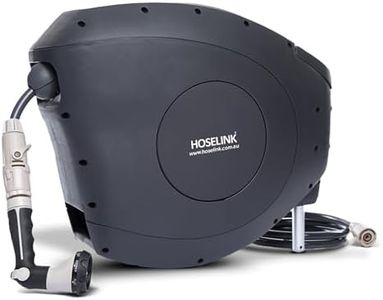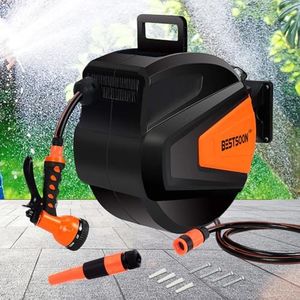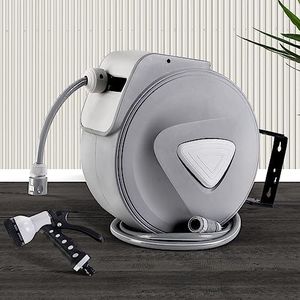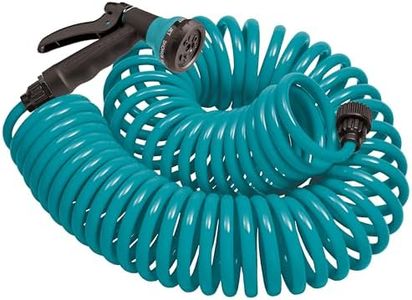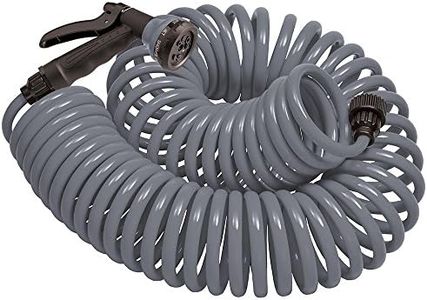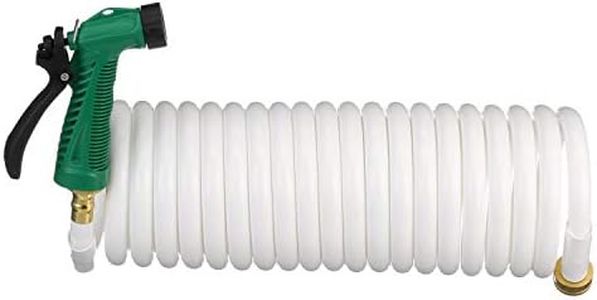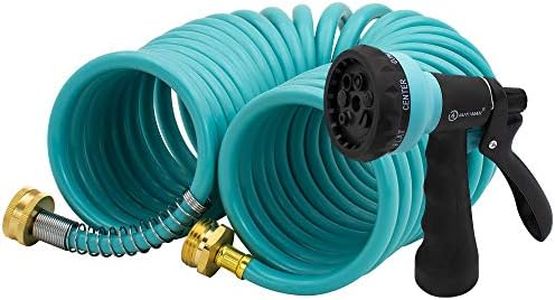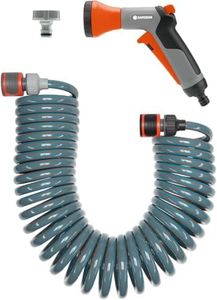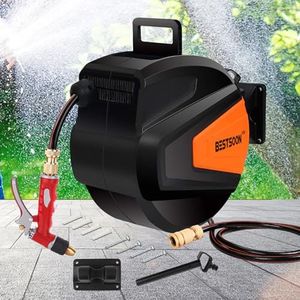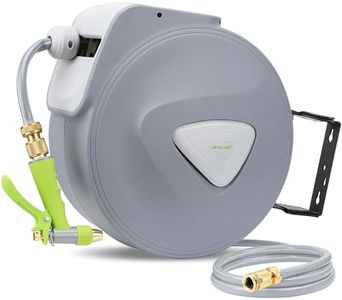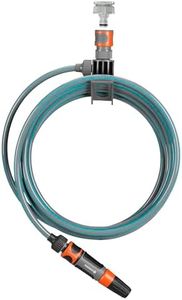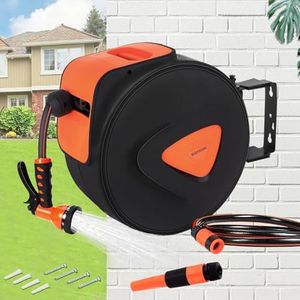We Use CookiesWe use cookies to enhance the security, performance,
functionality and for analytical and promotional activities. By continuing to browse this site you
are agreeing to our privacy policy
10 Best Coiled Garden Hoses
From leading brands and best sellers available on the web.By clicking on a link to a third party's website, log data is shared with that third party.
Buying Guide for the Best Coiled Garden Hoses
When shopping for a coiled garden hose, it's important to focus on features and specifications that match your gardening style, yard size, and intended uses. Coiled hoses are great for saving space and minimizing tangles, making them a popular choice for small gardens, decks, patios, or balconies. Before choosing, think about factors like reach, durability, ease of use, and where you'll mostly be using the hose. By paying attention to these key specs, you'll find a hose that makes watering tasks easier and more pleasant.LengthHose length is how far the hose can stretch when you pull it out for use. It's important because it determines how far you can reach from your water source. Coiled hoses come in various lengths, often ranging from about 15 feet to 50 feet when fully extended, but remember they will shrink back when released. Shorter lengths (15-25 feet) are ideal for watering small gardens, patios, or balconies where you don't need much reach, while longer hoses (30-50 feet) are better suited for larger yards or reaching around obstacles. Choose the length based on the distance from your spigot to the furthest spot you need to water, but remember longer hoses may have slightly lower water pressure.
DiameterThe diameter of the hose affects how much water flows through it at once. Standard coiled hoses are usually available in 1/4-inch, 3/8-inch, or 1/2-inch diameters. A smaller diameter makes the hose lighter and easier to handle, but it delivers less water, which is fine for light watering, small planters, or washing tasks. A larger diameter provides more flow, suitable for watering larger beds or filling buckets quickly. For most garden uses, 3/8-inch or 1/2-inch is a good balance; choose based on how much water you typically need at one time.
MaterialThe material of a coiled hose influences its durability, weight, flexibility, and resistance to kinking or UV damage. Common materials include polyurethane, PVC, or rubber blends. Polyurethane is lightweight, flexible, and resistant to weather, making it a popular choice for coiled hoses. PVC is affordable but may be stiffer and less durable over time. Rubber blends offer more durability but can be heavier. Consider where and how often you'll use the hose; if it's in full sun or high use, go for higher-quality material for longevity.
FittingsFittings are the connectors at each end of the hose, usually made from plastic, aluminum, or brass. This spec is important because it determines how tightly and easily you can attach the hose to your spigot or nozzle, plus it affects leak resistance. Plastic fittings are lightweight but may wear out faster, while brass and aluminum are more durable and provide a better seal. If you plan to use the hose frequently or want long-lasting performance, choose hoses with solid brass or aluminum fittings.
Coil Memory and Recoil EaseCoil memory is the hose's ability to return to its coiled shape after stretching. A hose with good coil memory will snap back quickly and not get tangled or twist awkwardly, making storage and use much easier. Poor coil memory can mean the hose stays stretched or doesn't retract neatly, creating clutter. If you want tidy storage and easy cleanup, look for hoses that mention strong recoil or good coil memory in their description.
WeightThe weight of the hose affects how easy it is to carry and maneuver, especially for people with limited strength or mobility. Lightweight hoses are easier to drag around your yard or hang up for storage, but heavier hoses may last longer and handle rough use better. Choose lighter hoses if you plan on frequent moving, or if children or elderly people will use the hose.
